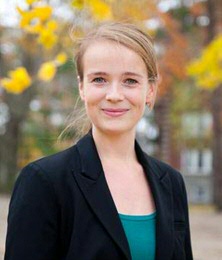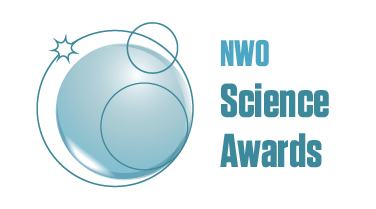NWO Athena Award voor Marthe Walvoort
Prof. dr. Marthe Walvoort heeft de Athena Award ontvangen, één van de vijf NWO-wetenschapsprijzen. Deze award is voor uitblinkende vrouwelijke onderzoekers. Naast Walvoort kreeg ook prof. dr. Adriana Creatore (TU Eindhoven) deze prijs. Zij krijgen elk een bedrag van € 50.000, bedoeld voor hun onderzoek.
Van 29 november t/m 3 december reikte het NWO-domein Exacte- en Natuurwetenschappen (ENW) voor de tweede keer vijf bijzondere wetenschappelijke prijzen uit. De winnaars worden door de jury gezien als een inspiratie op het gebied van maatschappelijke impact, team science, excellente wetenschap, diversiteit en communicatie. De prijzen hebben tot doel wetenschappers te belonen die zich hiervoor inzetten en anderen hiertoe inspireren. Elf winnaars ontvangen in totaal € 350.000.

Marthe Walvoort onderzoekt de complexe structuren van suikers, die een sleutelrol spelen bij gezondheid en ziekte. De jury beschouwt Walvoort als een natuurlijk rolmodel: ze is relatief jong in academische leeftijd en doet uitstekend en prestigieus interdisciplinair onderzoek. Daarnaast heeft ze een indrukwekkende staat van dienst op het gebied van outreach-activiteiten naast haar geweldige wetenschap. Walvoort heeft al veel bereikt, zoals het winnen van prestigieuze prijzen en het lanceren van de Jonge Akademie Groningen. De jury heeft positief erkend dat zij voorzitter is geweest van de werkgroep Diversiteit en Inclusie en momenteel betrokken is bij het bureau Dual Career Support van de universiteit. De jury bewondert dat ze aandringt op structurele veranderingen in de werkomgeving door de regels en voorschriften te definiëren in de richting van diversiteit en inclusie.

Meer nieuws
-
17 februari 2026
De lange zoektocht naar nieuwe fysica
-
10 februari 2026
Waarom slechts een klein aantal planeten geschikt is voor leven
